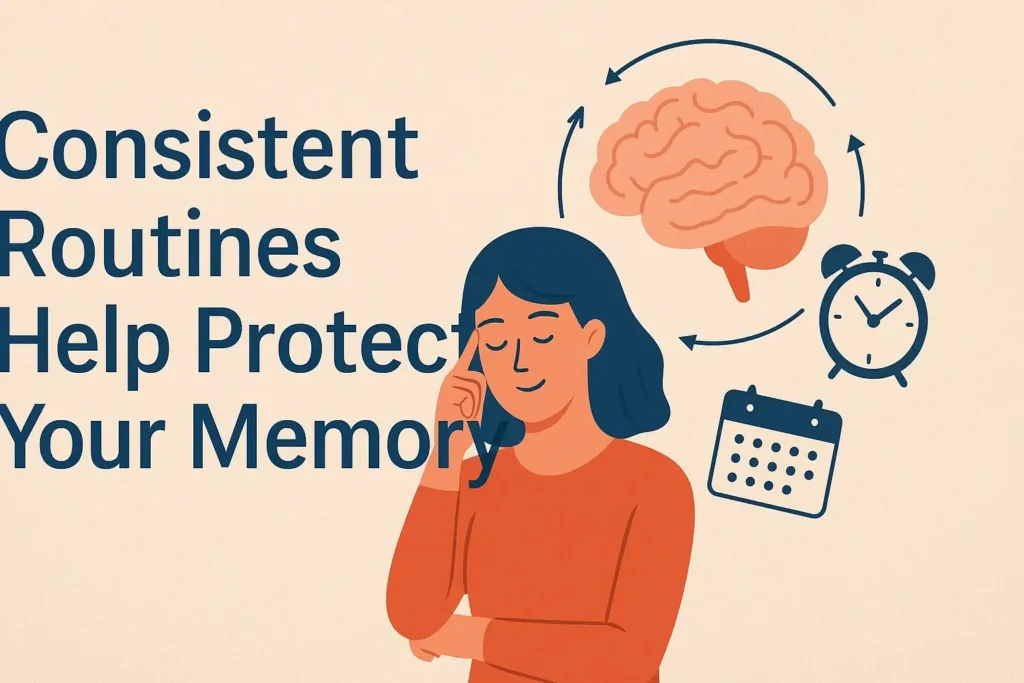Updated: November, 2025
If you’ve ever found yourself wide awake at 2am, scrolling through your phone and wishing you could talk to someone about how overwhelmed you feel, you’re not alone.
More people are turning to AI chat tools for comfort, clarity, or just a place to put their thoughts when friends are asleep and therapists are off the clock. That’s where AI psychology assistants come in, digital tools designed to offer mental health support in a calm, conversational way.
Used wisely, they can be genuinely helpful.
Used as a replacement for real therapy, they can be risky.
This article walks through what AI psychology assistants can do, what they can’t do, and how to use them as one tool in your mental health toolkit, not the whole toolbox.
What Is an AI Psychology Assistant, Exactly?
An AI psychology assistant is a chat-based program that uses artificial intelligence to:
- Ask you questions
- Reflect your thoughts back in a clearer way
- Offer coping strategies and education
- Help you track patterns in your mood and behaviour
It might look like a chat window in an app or on a website. You type in what’s going on; it responds in natural, everyday language.
Important to say up front:
An AI psychology assistant is not a therapist, psychologist, psychiatrist, or doctor.
Think of it more like a very patient, always-available note-taker and coach that can help you explore what you’re feeling and remember things you want to bring up with a real person later.
Some mental health services are experimenting with these tools to give people support between sessions. For example, in Australia, services like TherapyNearMe.com.au are testing AI psychology assistants (such as their chatbot “psAIch”) to help people check in with their mood and practice coping strategies between appointments.
Where AI Psychology Assistants Can Actually Help
Used in the right way, AI support can be surprisingly helpful in day-to-day life. Here are some areas where it can shine.
1. Putting Words to How You Feel
Many people sit down to write in a journal and then freeze.
“I feel bad” is all that comes out.
An AI assistant can gently prompt you with questions like:
- “Can you tell me what happened just before you started feeling this way?”
- “Where do you notice this feeling in your body?”
- “What thoughts are running through your mind right now?”
By answering those questions, you’re effectively organising your thoughts. That alone can lower emotional intensity and help you understand what’s really going on.
2. Gentle Education About Mental Health
AI tools can also give you plain-language explanations of common mental health topics, such as:
- What anxiety can feel like in the body
- The difference between stress and burnout
- What panic attacks are and how they work
When you’re feeling overwhelmed, having information broken down step by step can be grounding. It turns a vague cloud of “something is wrong with me” into something more specific and understandable.
3. Practising Skills Between Sessions
If you’re already seeing a therapist, an AI psychology assistant can act as a practice buddy between appointments.
You might use it to:
- Run through a breathing exercise
- Practise a grounding technique
- Challenge an unhelpful thought using a CBT-style framework
- Rehearse what you want to say in a difficult conversation
You can say, “I’m working on challenging black-and-white thinking. Can you walk me through that again?” The assistant can then guide you through the steps you’ve already learned in therapy, helping you consolidate those skills.
4. Tracking Patterns Over Time
When you talk to an AI tool regularly, you can use it to notice patterns:
- “I’m always more anxious on Sunday nights.”
- “My sleep gets worse whenever I skip meals.”
- “I argue with my partner after stressful workdays.”
You might not spot these patterns in the moment. But when you look back over a week or two of conversations, it becomes easier to see connections.
Those insights can be incredibly useful when you talk with a health professional. You’re not arriving with a vague “I feel bad”; you’re arriving with clear examples and timelines.
5. Lowering the Barrier to Asking for Help
For some people, talking to an AI assistant feels less scary than opening up to another human being right away.
If you’ve never seen a psychologist before, or you’re worried about being judged, a chatbot can be a gentler first step. It gives you a chance to:
- Practise saying things out loud (or in text)
- Figure out what you want to talk about
- Get used to the idea of sharing your inner world
- Ideally, that doesn’t replace human support. It paves the way towards it.
What AI Can’t Do (and Shouldn’t Try to Do)
All of that sounds positive but there are clear limits we shouldn’t gloss over.
1. It Can’t Diagnose or Treat You
AI tools can’t:
- Diagnose depression, anxiety, ADHD, PTSD, or any other condition
- Prescribe medication
- Provide official treatment plans
They don’t know your full medical history, and they can’t take responsibility for your care. If you’re worried about symptoms or considering treatment options, you still need to speak with a qualified professional such as a GP, psychologist or psychiatrist.
2. It’s Not Safe for Crisis Support
If you are:
- Thinking about hurting yourself or someone else
- In immediate danger
- Involved in abuse or violence
- Having strong suicidal thoughts
- AI is not the right place to turn.
In those moments, you need human help, local emergency services, crisis lines, or trusted people in your life. Many tools will say this clearly, but it’s worth repeating: AI cannot respond in real time if your safety is at risk.
3. It Doesn’t Truly “Know” You
Even when an AI assistant feels very responsive, it doesn’t have a human therapist’s ability to:
- Notice your body language or tone
- Pick up on what you’re not saying
- Hold a long-term, secure relationship with you
Its answers are generated based on patterns in data, not on a deep personal understanding of your life, values and relationships. That’s one reason it’s best used as a complement, not your only source of support.
4. There Are Privacy Considerations
Any time you type something deeply personal into an app or website, it’s worth asking:
- Where is this data stored?
- Is it encrypted?
- Is it shared with third parties?
- Can I delete my history if I want to?
Reputable services will have clear privacy policies and options to control your data. It’s okay to be cautious here, your mental health information is sensitive and deserves respect.
How to Use an AI Psychology Assistant Safely
If you decide to try an AI mental health tool, here are a few guidelines to keep it safe and genuinely helpful.
1. Treat It Like a Tool, Not a Therapist
Use AI as:
- A journalling aid
- A way to practise skills
- A resource for education
Don’t use it as:
- Your only source of mental health advice
- A replacement for medical care
- The final word on big life decisions
2. Sense-Check Advice With a Human
If the assistant suggests a coping strategy or perspective you’re unsure about, bring it to:
- Your therapist or counsellor
- Your doctor
- A trusted, mentally healthy friend
You can literally say, “I tried this AI chat and it suggested X, what do you think?” A real person can help you filter what’s useful and what isn’t.
3. Protect Your Privacy
Before you open up fully, check:
- Does the app explain how it handles your data?
- Can you remain anonymous or use a nickname?
- Does it allow you to delete your conversations?
If anything feels unclear or uncomfortable, it’s okay to choose another tool or step away.
4. Notice How You Feel After Using It
A good sign:
- You feel calmer, clearer, or more organised
- You have specific ideas to try
- You feel more hopeful about getting support
A not-so-good sign:
- You feel more confused or guilty
- You feel dismissed or invalidated by the responses
- You start using it instead of connecting with people in your life
If your mood consistently drops after using an AI assistant, that’s useful information, and a reason to pause and talk to a human professional.
A Realistic Example: AI as a “Between Sessions” Support
Imagine someone named Sam who lives with anxiety.
Sam sees a psychologist every two weeks. The sessions help, but in between appointments:
- Work stress ramps up
- Sleep becomes patchy
- Worries spin at night
Sam starts using an AI psychology assistant in the evenings:
- On Sunday night, Sam types out all the things they’re worried about for the week. The assistant helps group these into realistic concerns vs. worst-case scenarios.
- During the week, Sam practises a grounding exercise the psychologist taught, asking the assistant to walk them through it step by step.
- The night before their next appointment, Sam scrolls back through the chats, noticing, “I’m always most anxious after long meetings,” and brings that insight to therapy.
The AI tool isn’t fixing Sam’s anxiety. It’s helping Sam stay engaged with therapy strategies, capture patterns, and arrive at each session more prepared.
That’s the kind of role AI is best suited for, supportive, not central.
When It’s Time to Reach for Human Support
No matter how good technology becomes, there will always be times when human connection and clinical expertiseare essential.
It’s worth reaching out for professional support if:
- Your mood has been low or flat for weeks
- Anxiety is affecting your sleep, work, study or relationships
- You’re withdrawing from friends, hobbies or things you used to enjoy
- You’re using alcohol, drugs, food or self-harm just to cope
- You’re having thoughts of hurting yourself or that life isn’t worth living
In those situations, please contact:
- Your doctor or local health service
- A registered psychologist, counsellor or therapist
- A mental health line or crisis service in your country
- AI tools might help you find words and notice patterns, but they can’t replace a real person sitting in your corner, listening carefully and tailoring support to you.
The Bottom Line
AI psychology assistants are not magic, and they’re not a substitute for real therapy.
But used thoughtfully, they can:
- Help you put your feelings into words
- Support you to practise skills between sessions
- Offer gentle education about mental health
- Lower the barrier to seeking real-life help
Think of them as one tool among many, alongside sleep, movement, nutrition, supportive relationships and professional care.
If you decide to try an AI assistant, do it with curiosity and boundaries. Let it help you understand yourself better, not convince you that you have to handle everything alone.


